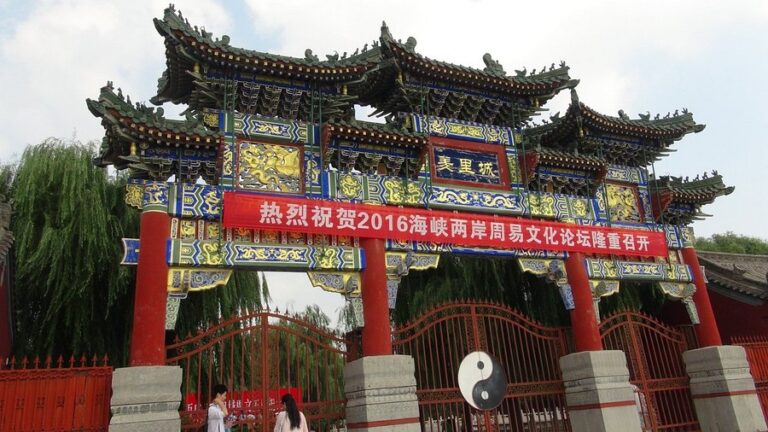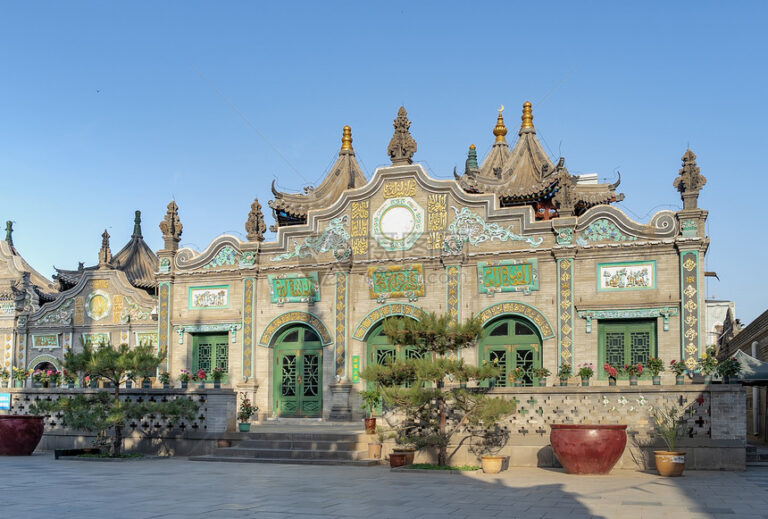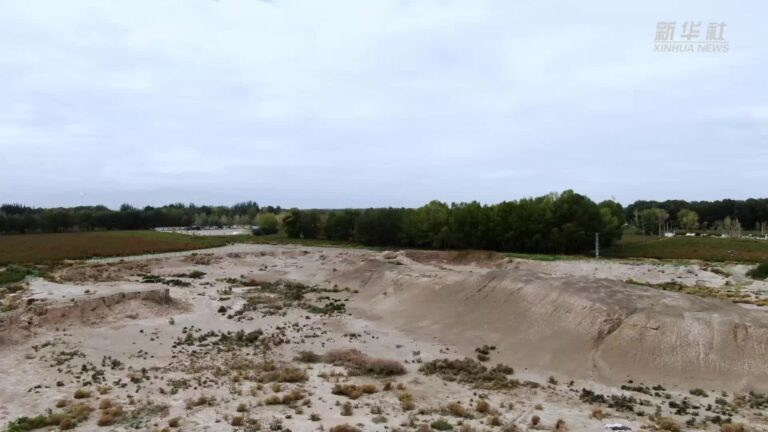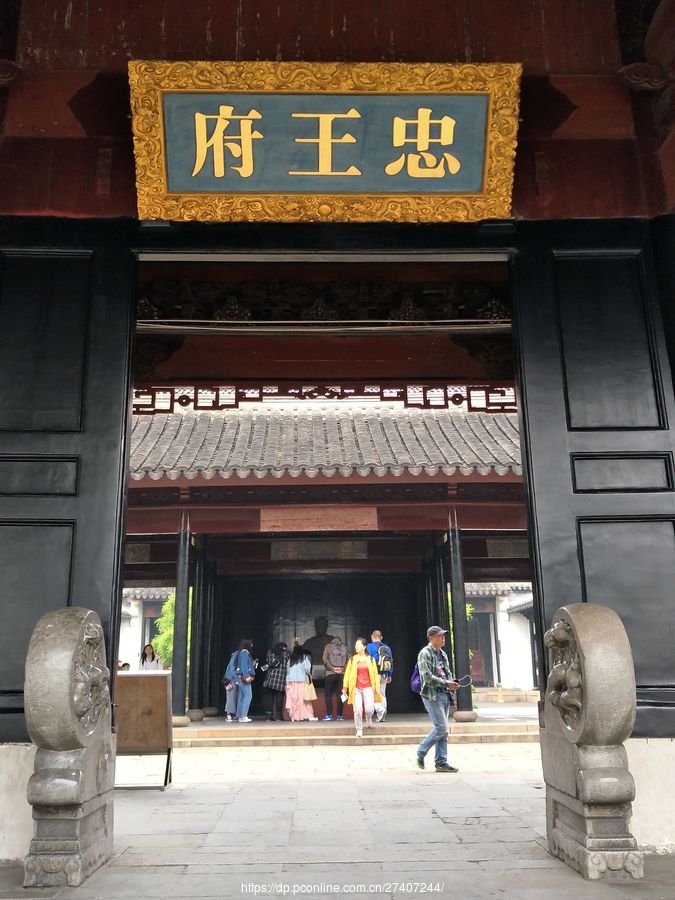Discovering Leshan Lidui: A Hidden Gem in Sichuan’s Scenic Landscape
An Essential Guide to Visiting Leshan Lidui
In This Guide
Nestled in the heart of Sichuan Province, Leshan is a city that effortlessly blends natural beauty with rich cultural heritage. Known historically as Jiazhuo, this charming locale is most famous for the awe-inspiring Leshan Giant Buddha, a UNESCO World Heritage Site that draws visitors from around the globe. Yet, there is more to Leshan than its colossal statue; the city is surrounded by breathtaking landscapes, ancient temples, and tantalizing cuisine that make it a must-visit destination for any traveler.
Among the hidden gems of this vibrant region is Lidui, a tranquil area often overshadowed by the grandeur of the Giant Buddha. Lidui, or “离堆,” offers a serene escape with its lush greenery and historic significance. Here, visitors can explore the remnants of ancient architecture and enjoy the peaceful ambiance that envelops the site. The area is steeped in stories of the past, including the legendary achievements of Li Bing, the ancient engineer who played a pivotal role in the region’s water management.
For those looking to immerse themselves in the local culture, Lidui serves as a gateway to experiencing the authentic charm of Leshan. This guide will take you on a journey through the must-see attractions, delectable local delicacies, and the enchanting surroundings that define this picturesque city. Whether you are a history buff, a nature lover, or simply seeking a culinary adventure, Leshan and Lidui promise an unforgettable experience that captures the essence of Sichuan’s rich tapestry of life. Get ready to uncover the beauty and stories that await in this extraordinary corner of China.
The Rich History of Leshan Lidui
Leshan Lidui, historically known as Wuyou Mountain, is a site rich in cultural and historical significance located in the enchanting city of Leshan, Sichuan Province. This area has been recognized for its deep-rooted connection to the ancient Shu culture, with its origins tracing back to the Zhou Dynasty (1046-256 BC). Leshan itself was once referred to as Jiazhu and has served as a crucial settlement in the region since ancient times.
The area’s prominence is largely attributed to its strategic geographical location at the confluence of the Dadu River and the Min River. This natural setting made it a vital hub for trade and agriculture, allowing it to flourish as a center of commerce and culture. In 277 BC, during the reign of King Zhao of Qin, the famous engineer Li Bing was appointed to govern the region. Tasked with controlling the flooding of the Min River, Li Bing undertook significant hydraulic engineering projects, which established a solid foundation for future developments in the region.

Leshan Lidui.
One of the pivotal moments in the history of Lidui occurred when Li Bing constructed a diversion channel, now known as the Mahao River, using advanced techniques for that era. This not only mitigated the threat of floods but also enhanced agricultural productivity, ultimately benefiting the local economy and society. The successful management of water resources here is a testament to the ingenuity of ancient Chinese engineering.
Over the centuries, Lidui evolved from a strategic military site into a peaceful retreat, fostering a rich tapestry of Buddhist culture. The area became home to several temples, notably the Wuyou Temple, which dates back to the Tang Dynasty (618-907 AD). The temple complex, adorned with intricate sculptures and serene landscapes, attracted pilgrims and tourists, solidifying its status as a significant spiritual site.
Despite the overshadowing fame of the Leshan Giant Buddha, constructed during the Tang Dynasty and recognized as a UNESCO World Heritage site, Lidui maintains its own unique charm and historical importance. It serves as a reminder of the region’s diverse cultural heritage, showcasing the interplay between nature, spirituality, and engineering prowess.

Leshan Lidui.
Today, visitors to Lidui can explore the remnants of its storied past, including ancient relics, temples, and the stunning natural scenery that has inspired poets and artists throughout history. The site offers a tranquil escape, inviting travelers to contemplate the profound historical narratives that have shaped this remarkable location.
Main Highlights: What to See at Leshan Lidui
Leshan Lidui (离堆) is a charming area nestled in the picturesque city of Leshan, Sichuan, known for its stunning natural beauty and rich cultural heritage. Here are the key highlights that make this destination a must-visit:
-
Historic Significance: Lidui, which translates to “leaving the pile,” has deep historical roots dating back to the time of the Qin Dynasty. It was a vital area for managing flood control on the Min River, reflecting the ingenuity of ancient engineering led by Li Bing, the local governor. Exploring this area allows visitors to appreciate the interplay of nature and history.
-
Scenic Views: The region offers breathtaking views, particularly from the heights of Wuyou Mountain (乌尤山). Here, visitors can enjoy panoramic vistas of the confluence of the Dadu River and Min River. The serene landscape, dotted with ancient trees and temples, creates a tranquil escape from the bustle of city life.
-
Cultural Sites: Lidui is home to several notable temples and shrines, including Wuyou Temple, which features intricate architecture and statues. These sites not only serve as places of worship but also provide insight into the local culture and Buddhist practices, making them a perfect spot for reflection and exploration.
-
Culinary Delights: The area surrounding Lidui is famous for its local cuisine. Visitors can indulge in unique dishes such as Leshan’s signature “Qiao Jiao Beef” and the renowned “Douhua” (tofu pudding) with a twist—featuring beef and other ingredients not commonly found in other regions. The vibrant street food scene offers a delicious way to experience local flavors.
-
Recreational Activities: For those seeking adventure, the scenic trails around Lidui provide excellent hiking opportunities. Whether you prefer a leisurely stroll or a more challenging hike, the natural beauty of the area is sure to captivate. Additionally, boat tours along the rivers offer a unique perspective of the stunning landscapes and the famous Leshan Giant Buddha.
-
Artistic Inspiration: Artists and photographers will find plenty of inspiration in Lidui’s picturesque scenery and ancient structures. The interplay of light and shadow, especially during sunrise and sunset, creates magical moments perfect for capturing on camera.
-
Accessibility: Located just a short distance from the bustling city of Chengdu, Lidui is easily accessible by high-speed train or bus, making it an ideal day trip for travelers looking to escape the urban environment without straying too far.

Leshan Lidui.
In summary, Leshan Lidui is a harmonious blend of history, culture, and natural beauty, making it a perfect destination for those looking to enrich their travel experience in Sichuan. Whether you are a history buff, a food enthusiast, or an outdoor adventurer, Lidui promises an unforgettable experience.
Planning Your Visit: A Practical Guide
Practical Guide to Visiting Leshan Lidui (离堆)
Leshan, renowned for its breathtaking landscapes and rich cultural heritage, is home to the scenic site of Lidui (离堆). This area, located near the famed Leshan Giant Buddha, offers visitors a blend of natural beauty, historical significance, and local culture. Here’s a practical guide to ensure you make the most of your visit.
Getting There
Transportation:
– By Train: High-speed trains run frequently from Chengdu East Station to Leshan Station, taking about 50 minutes. Tickets cost approximately CNY 54. From Leshan Station, you can take a taxi or public transport to Lidui.
– By Car: Renting a car is a convenient option for those who wish to explore at their own pace. The drive from Chengdu to Leshan takes about 1.5 to 2 hours, depending on traffic.
Best Time to Visit
The ideal time to visit Lidui is during spring (March to May) and autumn (September to November) when the weather is mild and the scenery is particularly beautiful. Summers can be hot and humid, while winters may bring chilly temperatures.
What to See and Do
1. Explore Lidui Park:
– Scenic Walks: The park is dotted with picturesque walking paths that offer stunning views of the Min River and surrounding hills. Don’t miss the chance to stroll along the riverside and enjoy the serene atmosphere.
– Historic Sites: Within the park, you can find remnants of historical structures, including pavilions and temples that reflect the area’s rich history.
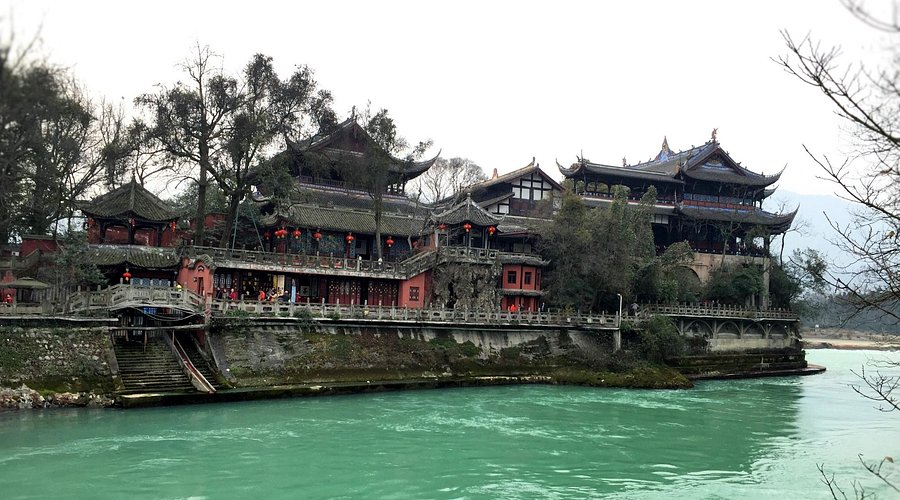
Leshan Lidui.
2. Visit the Nearby Attractions:
– Leshan Giant Buddha: This UNESCO World Heritage site is a must-see. The colossal statue of Buddha carved into a cliff face is just a short journey from Lidui.
– Wuyou Temple: Located on the opposite side of the river, this temple offers a deeper insight into local religious practices and stunning views of the Buddha.
3. Enjoy Local Cuisine:
– Sampling Street Food: After exploring, head to the nearby old town for some authentic Sichuan cuisine. Be sure to try local specialties like “Qiaojiao Beef” (跷脚牛肉) and “Douhua” (tofu pudding), which are popular among locals.
– Restaurants: There are several eateries near Lidui where you can enjoy traditional dishes. Look for places that feature local ingredients and flavors.
Tips for Visitors
- Tickets and Entry: While the Lidui Park is generally free, some specific attractions may require an entry fee. It’s advisable to check in advance or purchase tickets online to avoid long queues.
- Stay Hydrated: If you plan to walk extensively, especially during the warmer months, be sure to carry water with you.
- Respect Local Customs: When visiting temples or sacred sites, dress modestly and behave respectfully. This is particularly important in religious areas.
- Cash and Payment Methods: While many places accept mobile payments, it’s advisable to carry some cash as not all vendors may have electronic payment options.
Nearby Accommodation
If you wish to extend your stay in Leshan, there are a variety of accommodations ranging from budget hostels to mid-range hotels. Here are a few recommendations:
– Leshan Grand Hotel: A comfortable option with good amenities located near major attractions.
– Yingbin Hotel: Offers affordable rates and is well-rated for its cleanliness and service.
Conclusion
Lidui is a hidden gem that showcases the natural beauty and rich cultural tapestry of Leshan. With its easy accessibility, scenic views, and historical significance, it offers a perfect day trip from Chengdu. Plan your visit thoughtfully to immerse yourself fully in the enchanting atmosphere of this picturesque destination. Happy travels!

Leshan Lidui.
Tickets, Hours, and Booking
When planning your visit to Leshan Lidui (离堆), it’s essential to know about ticketing options to ensure a smooth experience. Here’s what you need to know:
Ticket Purchase Options:
-
Online Booking: It is highly recommended to purchase your tickets online in advance, especially during peak tourist seasons. This not only saves you time but also guarantees your entry to this popular site. Tickets can be conveniently bought through various travel websites or the official site of the Leshan tourism bureau.
-
On-Site Purchase: If you prefer to buy tickets upon arrival, you can do so at the entrance of the scenic area. However, be prepared for potentially long queues, particularly during weekends and holidays.
-
Ticket Prices: As of the latest information, the entrance fee for Leshan Lidui is approximately 60 RMB (around $9 USD) per person. Discounts may be available for students and seniors, so be sure to carry valid identification to take advantage of these offers.
-
Combo Tickets: If you plan to visit multiple attractions in Leshan, consider purchasing a combo ticket that includes access to the Leshan Giant Buddha and other nearby sites. This can provide substantial savings and simplify your itinerary.
-
Guided Tours: For those who prefer a more immersive experience, guided tours are available. These often include transportation, entrance fees, and a knowledgeable guide who can provide insights into the history and significance of the area. Prices for these tours vary based on inclusions and group size.
-
Opening Hours: Leshan Lidui is typically open from 8:00 AM to 6:00 PM, but hours may vary seasonally. Always check ahead of your visit to confirm the current hours of operation.
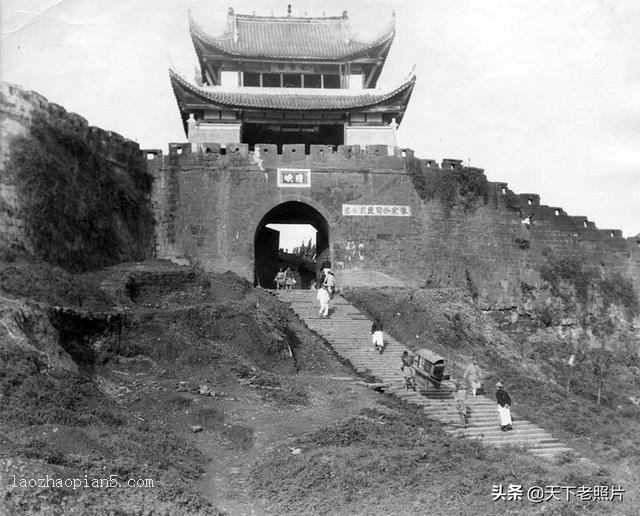
Leshan Lidui.
By planning ahead and securing your tickets, you can maximize your enjoyment of Leshan Lidui and explore the stunning natural beauty and cultural heritage it has to offer. Enjoy your visit!
How to Get There
When planning your visit to Leshan Lidui (离堆), understanding the transportation options available can greatly enhance your experience. Nestled in the picturesque Sichuan province, Leshan is conveniently accessible from major cities, making it an ideal destination for day trips or extended stays.
Getting to Leshan
- By Train:
- From Chengdu: The most popular route to Leshan is via high-speed train from Chengdu East Railway Station. Trains run frequently throughout the day, with a journey time of approximately 50 minutes. Ticket prices are around 54 RMB (about $8), making it both a quick and economical option.
-
From Other Cities: Leshan is also connected by train to various other cities in Sichuan, including Mianyang and Zigong. Ensure to check the schedule in advance, as frequency may vary.
-
By Bus:
-
If you prefer traveling by bus, there are long-distance buses available from Chengdu to Leshan, which typically take around 2-3 hours. Buses depart from several stations in Chengdu, including the Chengdu Xinnanmen Bus Station. This option might be less convenient than the train but can offer a scenic route through the countryside.
-
By Car:
- For those who wish to explore at their own pace, renting a car is a viable option. The drive from Chengdu to Leshan takes about 1.5 to 2 hours, depending on traffic. The roads are generally well-maintained, and having a car allows for flexible travel to nearby attractions.
Local Transportation in Leshan
Once you arrive in Leshan, getting around the city and to Lidui (离堆) is straightforward:
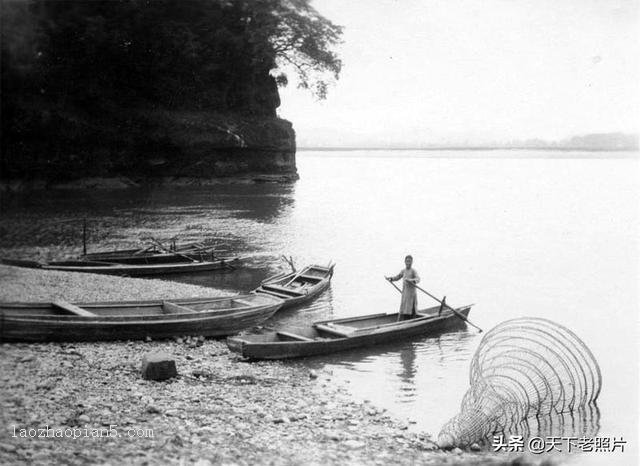
Leshan Lidui.
- Public Transport:
- Buses: Leshan has a reliable bus system that connects major tourist attractions. You can take public buses from the train station to Lidui Park with minimal hassle. Purchasing a bus ticket is inexpensive, usually costing just a couple of yuan.
-
Taxis and Ride-hailing Services: Taxis are widely available, and apps like Didi (China’s equivalent of Uber) can be used for a more convenient travel experience. Fares are reasonable, and this option is particularly handy if you’re traveling in a group or have luggage.
-
Walking and Cycling:
-
Many of Leshan’s attractions, including Lidui, are located within walking distance of each other, making it easy to explore on foot. The scenic paths provide a pleasant way to enjoy the local scenery. Alternatively, consider renting a bicycle for a leisurely ride around the area.
-
Boat Tours:
- For a unique perspective, boat tours on the Min River are available. This is a popular way to view the stunning Leshan Giant Buddha from the water, adding an adventurous touch to your visit.
Summary
Leshan Lidui (离堆) is well-connected by various modes of transportation, ensuring that your travel experience is smooth and enjoyable. Whether you choose the speed of a high-speed train, the convenience of a taxi, or the freedom of renting a car, getting to and around this beautiful destination is both easy and affordable. Prepare for an unforgettable journey as you explore the rich cultural heritage and stunning landscapes that Leshan has to offer!
Local Cuisine and Accommodation
When visiting Leshan, especially the scenic area around Lidui, food and accommodation options abound, offering a taste of the local culture and hospitality. Here’s a guide to the must-try dishes and the best places to stay in this charming region.
Culinary Delights
Leshan is renowned for its rich culinary heritage, with a range of dishes that reflect the bold flavors of Sichuan cuisine. Here are some local specialties you shouldn’t miss:

Leshan Lidui.
- Shu Mai (烧麦): These steamed dumplings are a must-try, especially the Leshan variety, which often features a delightful mix of meats and spices.
- Tofu Pudding (豆腐脑): Unique to Leshan, this dish can be savory or sweet. The savory version, often topped with minced beef or pork and spices, is particularly popular among locals.
- Qiao Jiao Beef (跷脚牛肉): This iconic dish features tender beef served with a rich, spicy broth. It’s a staple in local eateries and is often accompanied by handmade noodles.
- Sweet Skin Duck (甜皮鸭): Another local favorite, this dish features duck cooked to perfection with a sweet glaze, creating a mouthwatering contrast of flavors.
- Noodle Dishes: The streets of Leshan are lined with stalls offering various noodle dishes, perfect for a quick meal after exploring the sights.
Where to Stay
Leshan offers a variety of accommodations, from budget hostels to luxurious hotels, ensuring that every traveler finds something to fit their needs.
-
Leshan Grand Hotel (乐山大酒店): Located conveniently near the city center, this hotel provides comfortable rooms along with amenities such as a restaurant and conference facilities. It’s a great base for exploring both the city and the nearby attractions.
-
Leshan Yuyuan Hotel (乐山玉苑宾馆): This hotel combines modern comfort with traditional decor, offering a relaxing atmosphere. The staff is known for their warm hospitality, making it a pleasant stay for visitors.
-
FODI Island Guesthouse (FODI孤岛观佛客栈): For those seeking a unique experience, this guesthouse provides stunning views of the Leshan Giant Buddha from its rooms. The accommodation is cozy and offers meals featuring local cuisine.
-
Hostels and Budget Options: There are several budget-friendly hostels in the area, such as the Leshan Youth Hostel, which is perfect for backpackers looking for a social atmosphere and affordable pricing.
-
Traditional Guesthouses: If you wish to experience local life more intimately, consider staying at a traditional guesthouse. These often offer a homely feel and homemade meals, allowing you to connect with local culture.

Leshan Lidui.
In summary, Leshan’s culinary scene and accommodation options offer a rich blend of flavors and comforts, ensuring that your visit to Lidui is filled with delightful experiences both on your plate and in your home away from home.
Frequently Asked Questions
Frequently Asked Questions about Leshan Lidui (离堆)
1. What is Leshan Lidui?
Leshan Lidui, also known as Lidu Hill, is a scenic area located near the famous Leshan Giant Buddha in Sichuan, China. It offers a peaceful environment with beautiful landscapes, making it an ideal spot for visitors looking to escape the crowds.
2. How do I get to Leshan Lidui from Chengdu?
To reach Leshan Lidui from Chengdu, you can take a high-speed train from Chengdu East Station to Leshan. The journey takes around 50 minutes, and tickets are reasonably priced at approximately 54 CNY. From Leshan station, you can take a taxi or a local bus to reach the Lidui area.
3. What are the main attractions at Leshan Lidui?
The main attractions at Leshan Lidui include the picturesque views of the Dadu River, the historical sites of Wuyou Mountain, and the ancient architecture of the area, including temples and pagodas. Visitors can also enjoy scenic walks along the riverbanks and explore the cultural heritage of the region.
4. Is there an entrance fee for visiting Leshan Lidui?
While there is no specific entrance fee for Leshan Lidui itself, certain attractions within the area, such as temples, may charge a small admission fee. It’s advisable to bring some cash for these additional costs.

Leshan Lidui.
5. What is the best time to visit Leshan Lidui?
The ideal time to visit Leshan Lidui is during the spring (March to May) and autumn (September to November) when the weather is mild and the scenery is particularly beautiful. Summers can get hot and humid, while winters may bring chilly temperatures.
6. Are there any dining options near Leshan Lidui?
Yes, there are several dining options near Leshan Lidui where you can enjoy local Sichuan cuisine. Popular dishes include spicy hotpot, mapo tofu, and the famous Leshan beef dishes. You can find both street food vendors and casual dining establishments in the area.
7. Can I explore Leshan Lidui in a day?
Absolutely! Many visitors can comfortably explore Leshan Lidui and its surrounding attractions within a single day. A well-planned itinerary will allow you to take in the scenic views, visit historical sites, and enjoy a meal, all in one visit.
8. What should I bring when visiting Leshan Lidui?
When visiting Leshan Lidui, it’s recommended to wear comfortable shoes for walking, carry a water bottle, and bring a camera to capture the stunning views. Additionally, sunscreen and a hat are advisable, especially during the summer months.
Final Thoughts on Your Trip
Leshan Lidui offers a unique glimpse into the rich tapestry of culture, history, and natural beauty that defines this enchanting region. As you wander through its serene landscapes and ancient relics, you will find that this lesser-known gem stands in the shadow of the more famous Leshan Giant Buddha but shines brightly in its own right. The peaceful surroundings of Lidui invite reflection and serenity, making it an ideal escape from the hustle and bustle of modern life.

Leshan Lidui.
For travelers seeking authenticity, the blend of breathtaking natural scenery and cultural heritage presents an opportunity to immerse oneself in the local way of life. From indulging in mouthwatering Sichuan cuisine to exploring ancient temples, every moment spent in Lidui is a step back in time, a chance to connect with the essence of traditional Chinese culture.
Whether you choose to bask in the tranquility of the riverside or delve deeper into the fascinating stories of its historical significance, Leshan Lidui promises a memorable experience that enriches the spirit. As you leave, take with you not only the memories of stunning vistas and delicious flavors but also a newfound appreciation for the quieter, yet equally captivating, treasures of Sichuan. Embrace the journey, and let Lidui whisper its secrets into your heart.


